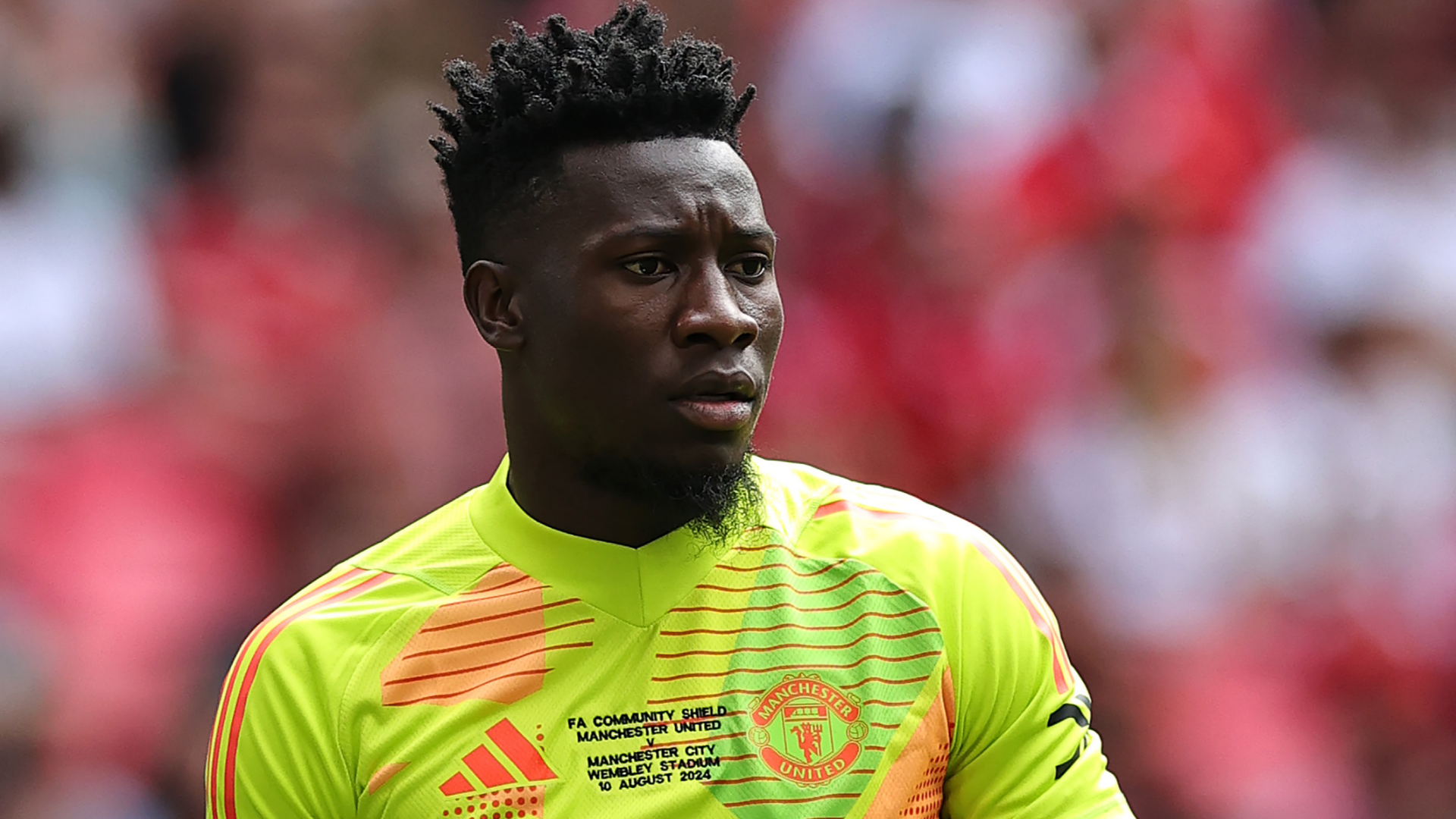Manchester United’s Andre Onana has emerged from early criticism to establish himself as a serious contender for the league’s top goalkeeper, challenging Liverpool’s Alisson Becker’s long-held supremacy. The Cameroonian’s journey from a rocky start to becoming United’s reliable last line of defense illustrates a compelling story of resilience and redemption.
Following his £43.8 million transfer from Inter Milan, Onana stepped into the considerable shadow cast by David de Gea’s departure, a transition marked by controversy and skepticism. De Gea’s exit, clouded by reports of a retracted contract agreement, left United’s new goalkeeper facing not just the pressure of performance but also the weight of replacing a club legend who had claimed the previous season’s Golden Glove award.
The early days of Onana’s United career were far from smooth. His pre-season appearances, marked by ambitious positioning near the halfway line, initially excited fans eager for a more modern approach to goalkeeping. However, this enthusiasm quickly turned to concern as errors began to mount, culminating in a particularly memorable mistake in the Champions League against Bayern Munich, where a Leroy Sane shot squirmed through his arms in a 4-3 defeat.
What sets Onana apart, however, is his approach to adversity. Following the Bayern debacle, he demonstrated remarkable leadership by confronting his mistakes head-on, telling cameras, “I’m the one who let the team down… This was probably my worst game.” This accountability echoed his previous resilience, having overcome setbacks including a drug ban at Ajax and initial struggles at Inter Milan.
The 2024-25 season has seen Onana transform into one of the Premier League’s most effective shot-stoppers. Through twelve games, he leads the league in preventing goals from high-probability shots, demonstrating an ability to make saves that statistically seemed improbable. His recent performance in a 1-1 draw at Ipswich Town under new head coach Ruben Amorim showcased this improvement, with two spectacular saves against Liam Delap that drew comparisons to United legend Peter Schmeichel.
Onana’s evolution has coincided with a gradual shift in United’s playing style. Initially restricted to long-ball distribution despite his renowned passing ability, he has increasingly been given license to showcase his skills with the ball at his feet. This aspect of his game is expected to become even more prominent under Amorim, who emphasizes possession-based football.
The landscape of Premier League goalkeeping is experiencing a potential shift. While Alisson Becker has reigned supreme since his 2018 arrival at Liverpool, recent developments, including the Reds’ future signing of Valencia’s Giorgi Mamardashvili and Alisson’s injury concerns, suggest the throne might soon be available. Among the contenders, including Arsenal’s David Raya, Manchester City’s Ederson, Tottenham’s Guglielmo Vicario, and Aston Villa’s Emi Martinez, Onana’s comprehensive skill set makes him a compelling candidate.
However, Onana’s recognition as potentially the league’s best goalkeeper faces one significant obstacle: Manchester United’s current mid-table status. Historical precedent suggests that goalkeepers receive the highest acclaim when their teams compete at the top of the table, rather than when they excel in mid-table obscurity. The symbiotic relationship between team success and individual recognition means Onana’s ultimate ascension may depend on United’s ability to climb the table under Amorim’s leadership.
The transformation of Onana from a goalkeeper who faced intense scrutiny to one who regularly produces match-saving performances exemplifies the volatile nature of the position. His journey reflects not just personal growth but also the evolving demands placed on modern goalkeepers, who must excel not only in shot-stopping but also in distribution and leadership.
As Manchester United continues its transition under new management, Onana’s development stands as a rare bright spot in a challenging period for the club. His ability to overcome early setbacks, combined with his growing influence on matches, suggests that United’s decision to move on from De Gea may prove prescient in the long term. The question now is whether the team’s overall trajectory can match Onana’s individual excellence, allowing him to receive the recognition his performances increasingly deserve.




